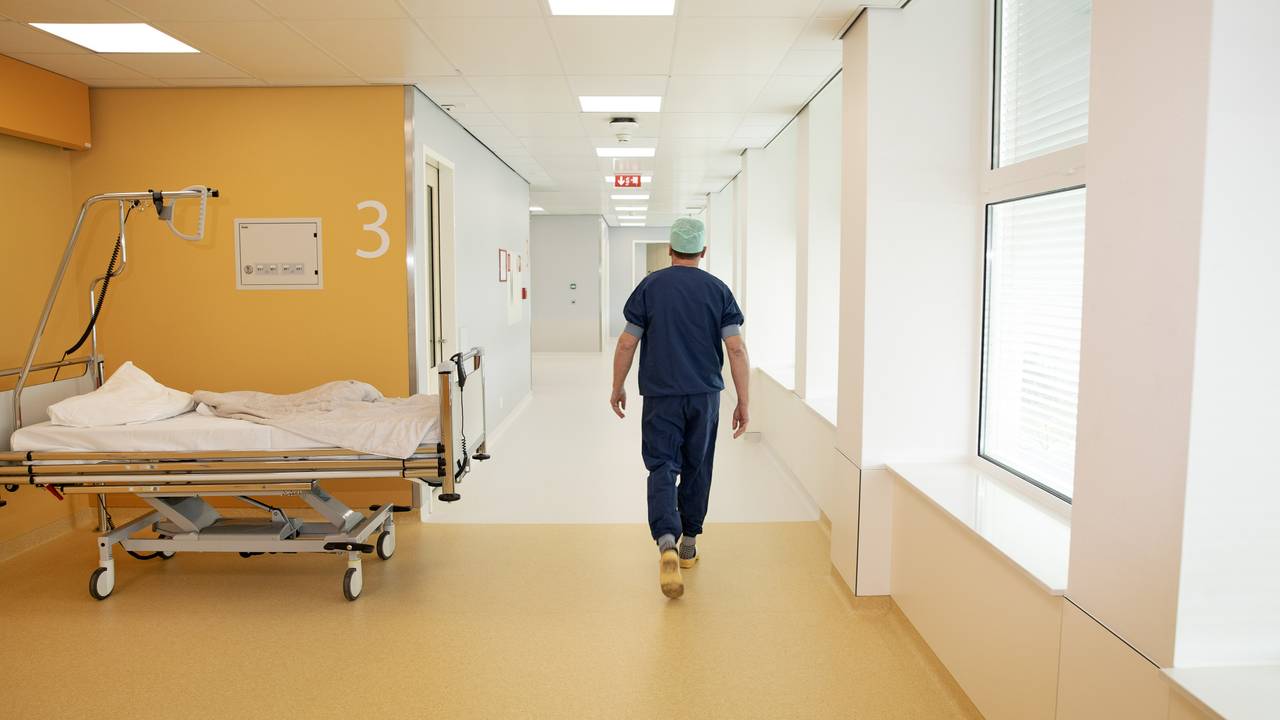Rigorous Measures Needed to Tackle Pressure on Healthcare in Brabant
Brabant, Netherlands – The care sector in Brabant is facing major problems as the pressure on general practitioners, nursing homes, and hospitals is expected to become overwhelming in the coming years. Bart Berden, chairman of the Regional Consultation Acute Care, has expressed his concerns about the situation, emphasizing the need to avoid a repeat of the challenges faced during the COVID-19 pandemic.
Berden has conducted extensive research into the state of healthcare in Brabant and the results have left him shocked. He predicts a staff shortage of ten percent in hospitals and twenty percent in nursing homes within the next ten years. Additionally, the number of visits to general practitioners is projected to increase by ten percent, while hospital visits are expected to rise by thirty percent. This combination of factors is creating enormous problems for the healthcare system.
Last year alone, the emergency departments of hospitals in the province had to be closed forty times due to staff shortages. Berden describes this situation as harrowing and warns that it will occur more frequently if no action is taken.
One of the major contributors to the pressure on healthcare is the aging population. With more elderly people in need of care, the existing staff is unable to meet the demand. Furthermore, Brabant has a significant number of labor migrants who also require medical attention, further straining the system.
“To solve the problems with huge waiting lists, Berden proposes delegating more tasks to municipalities and individuals themselves,” said a spokesperson for Berden. For instance, lonely elderly individuals often call their general practitioners, and additional facilities are needed to address this issue. Berden suggests exploring the possibility of utilizing libraries or other community spaces as meeting points for these individuals.
Maternity care is another area that requires attention. While new parents are entitled to 24 hours of maternity care at home, Berden believes that this guarantee can no longer be met in Brabant. To address this, he proposes the establishment of more maternity hotels. This would eliminate the need for maternity assistants to travel and allow them to assist multiple women simultaneously. Although this solution may not be ideal for parents, Berden argues that it is necessary given the circumstances.
Berden also highlights the need for improved management in care centers. He suggests the implementation of a coordination center that would provide visibility on available beds in nursing homes. Currently, departments have to make multiple calls to find an available nursing home, resulting in delays and unnecessary occupation of hospital beds.
Berden’s alarm is driven by his belief that the future of care cannot be guaranteed without immediate action. In the coming months, he plans to collaborate with healthcare providers and health insurers to develop a comprehensive plan of action.
The challenges faced by the care sector in Brabant require urgent attention and the implementation of rigorous measures to ensure the provision of quality healthcare for all residents.
How can the recruitment and training of healthcare professionals be increased to address current and projected staff shortages in hospitals and nursing homes?
Nder increasing strain to meet the demands. Berden argues that immediate action is needed to address this issue and suggests several measures that could alleviate the pressure.
First and foremost, Berden advocates for increasing the recruitment and training of healthcare professionals. This would help to address the projected staff shortages in hospitals and nursing homes. He also emphasizes the importance of attracting more people to the healthcare sector, especially young professionals, through improved working conditions and competitive salaries.
In addition, Berden proposes the implementation of telehealth and telemedicine solutions to reduce the number of visits to general practitioners and hospitals. This would allow for remote consultations and monitoring of patients, effectively managing healthcare needs without overwhelming the existing resources.
Furthermore, Berden calls for an increased focus on preventive care and self-management of chronic diseases. By promoting healthy lifestyles and empowering individuals to take control of their own health, the burden on healthcare services can be reduced.
Berden also stresses the importance of collaboration between various healthcare providers and organizations. By working together and sharing resources, the healthcare system in Brabant can become more efficient and effective in meeting the growing demands.
Lastly, Berden highlights the need for adequate funding and investment in healthcare infrastructure. This includes upgrading and expanding hospitals and nursing homes to accommodate the increasing number of patients.
In conclusion, Bart Berden’s research has shed light on the challenges faced by the healthcare sector in Brabant. Urgent and rigorous measures are needed to tackle the pressure on general practitioners, nursing homes, and hospitals. Through increased recruitment and training of healthcare professionals, implementation of telehealth solutions, emphasis on preventive care, collaboration between healthcare providers, and adequate funding, the healthcare system can be strengthened to meet the growing demands and avoid a crisis similar to the one experienced during the COVID-19 pandemic.

This article brings much-needed attention to the urgent issues facing the care sector in Brabant. It serves as a powerful call for action, highlighting the importance of addressing the pressing challenges and ensuring better care for the people in this region.